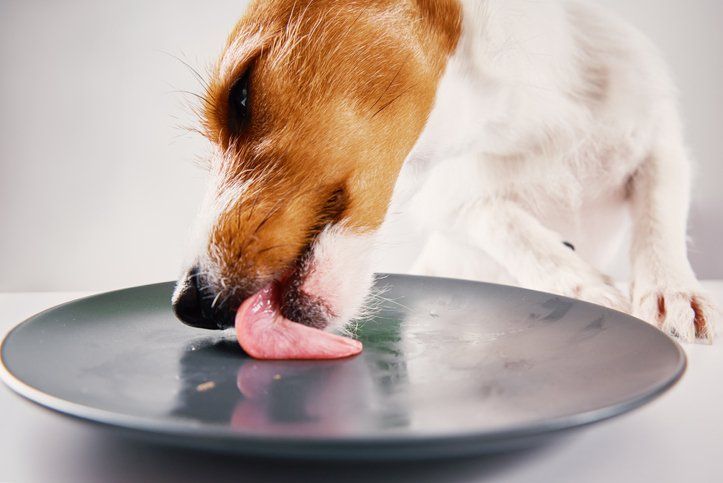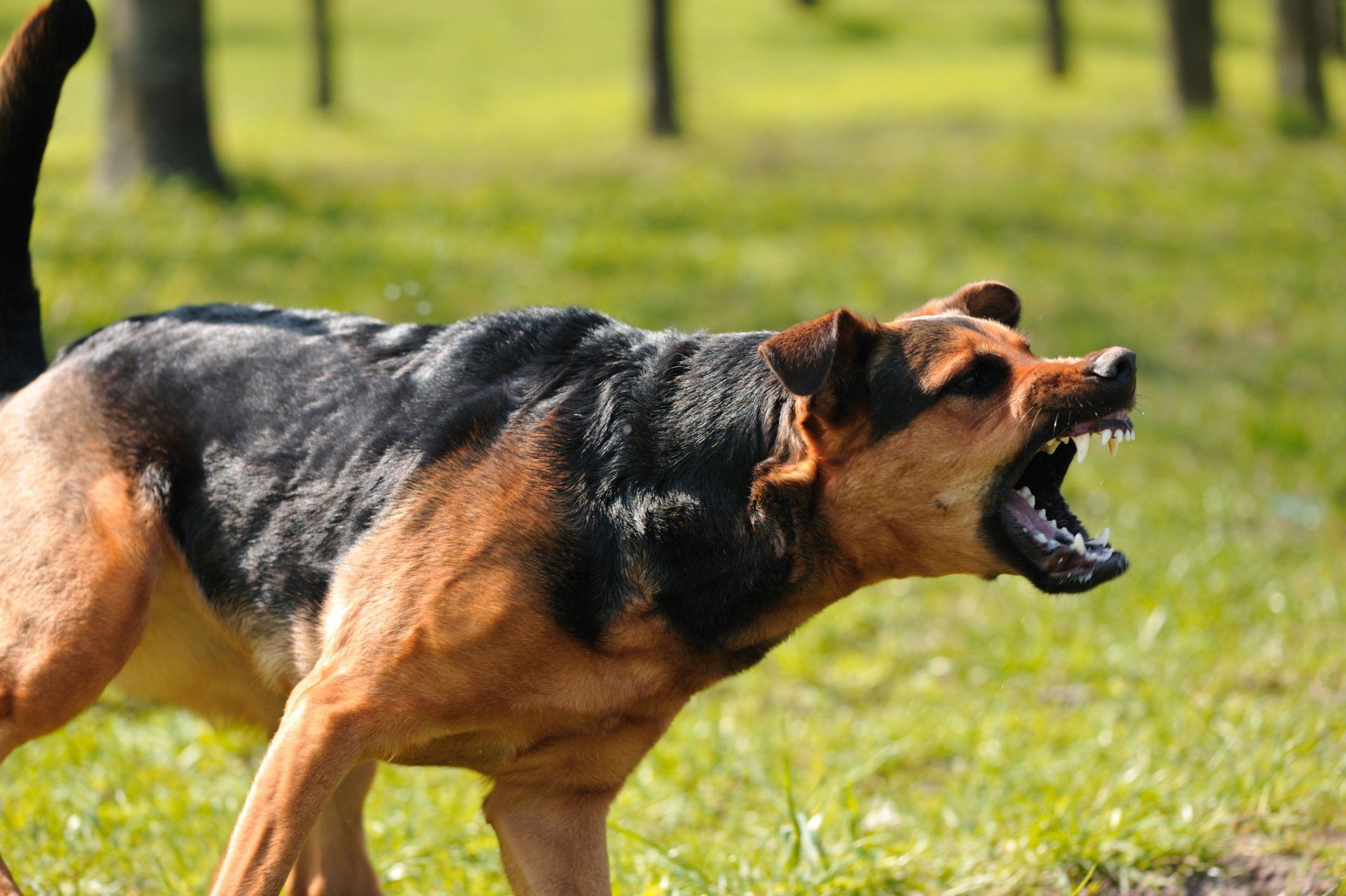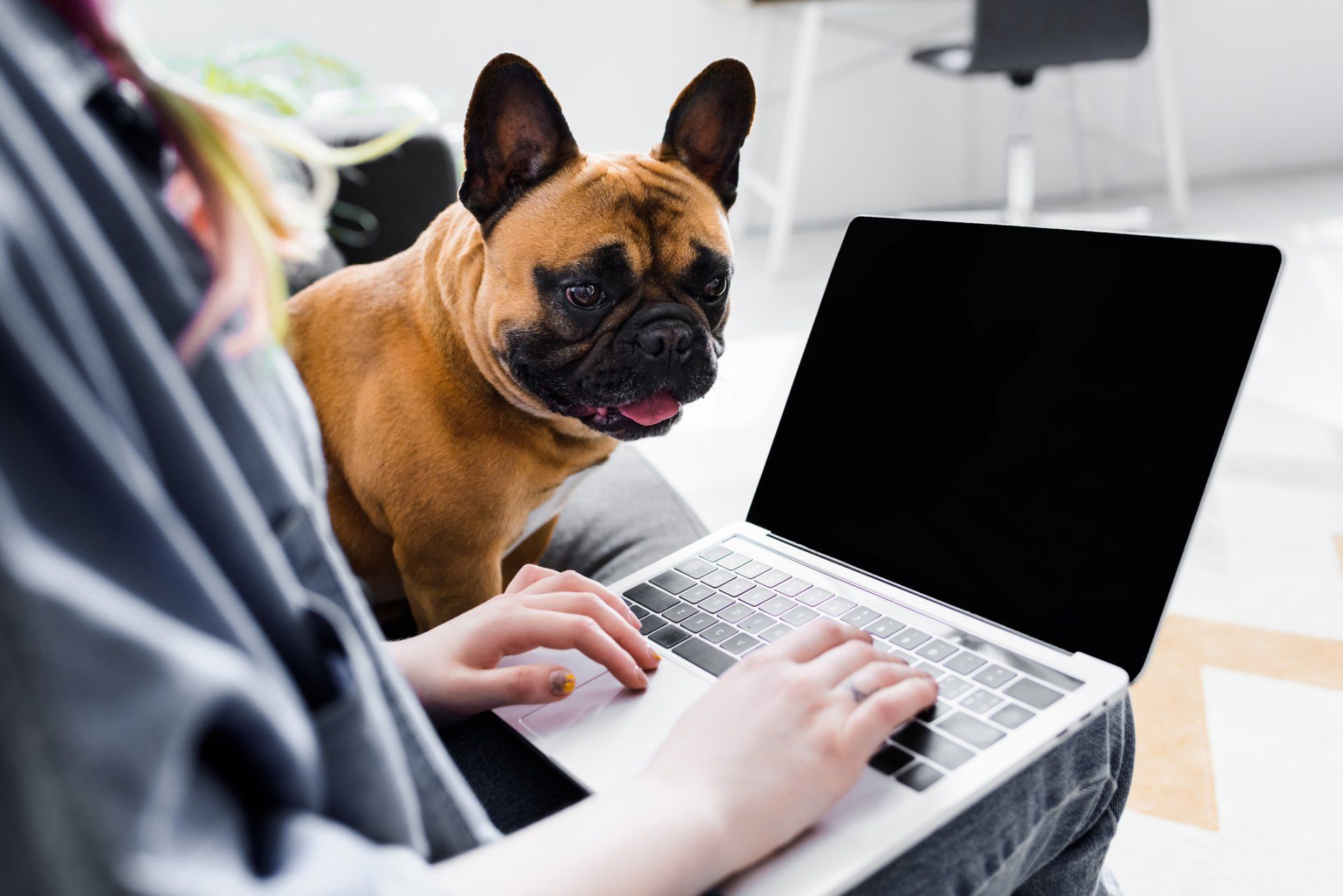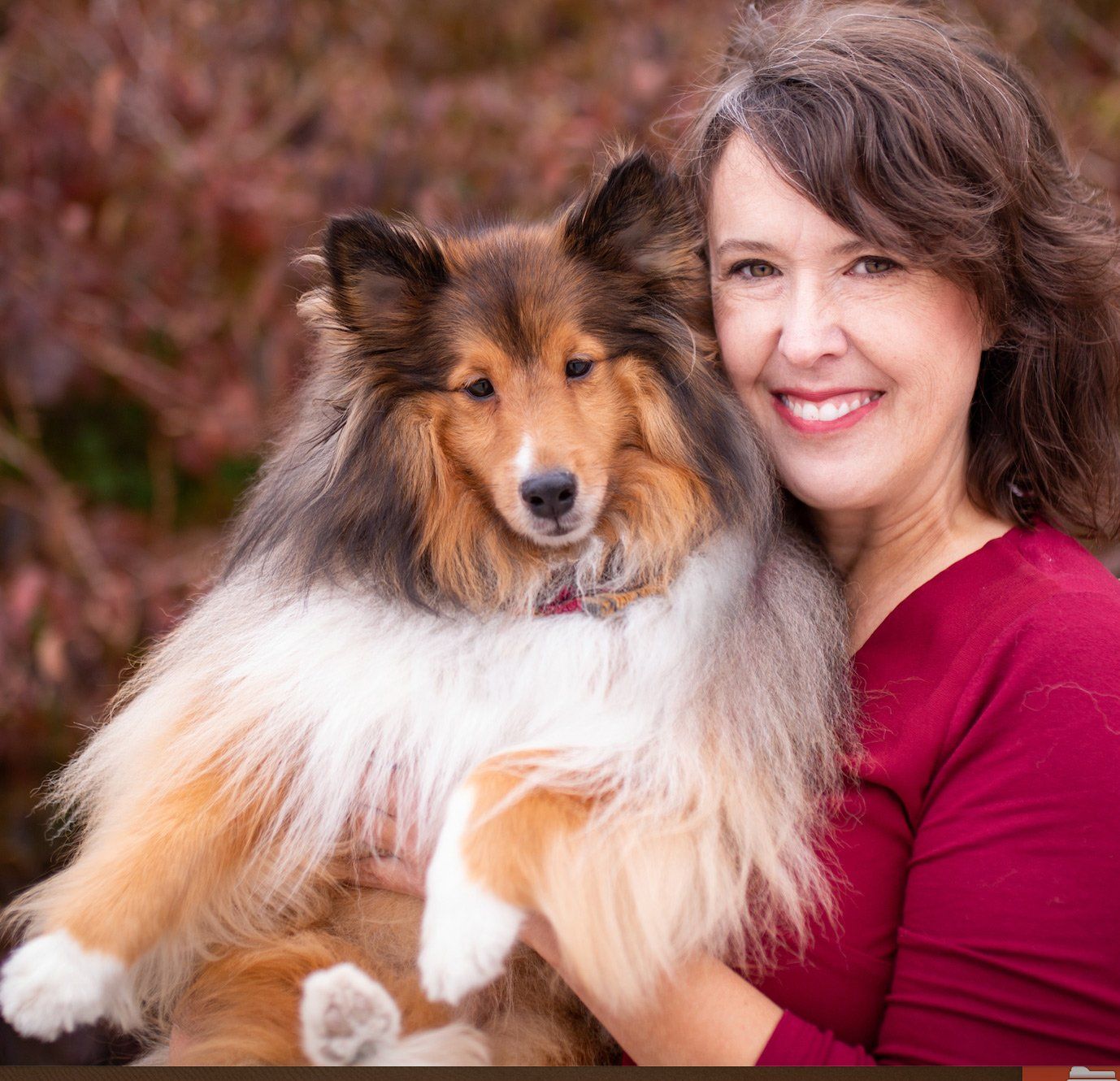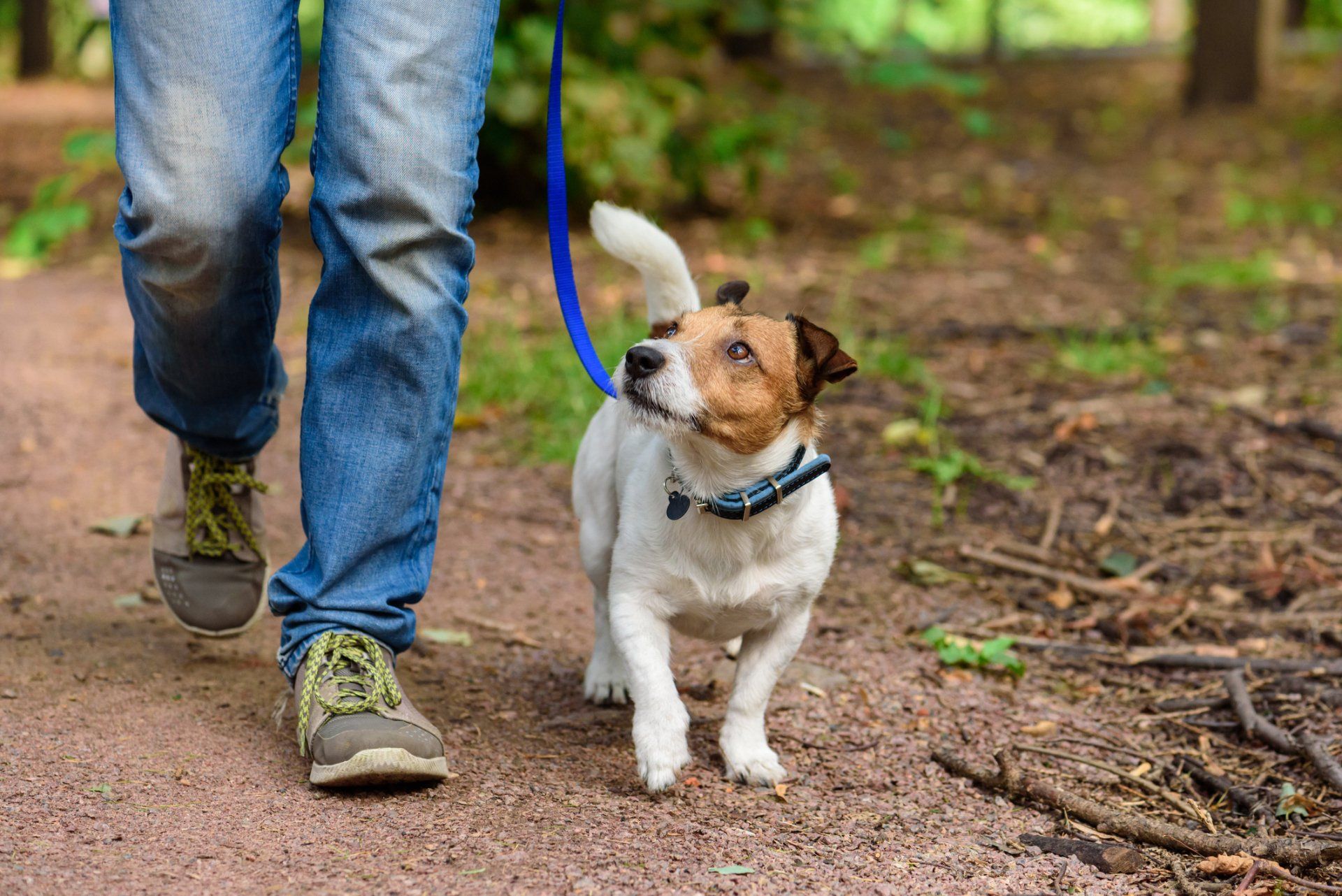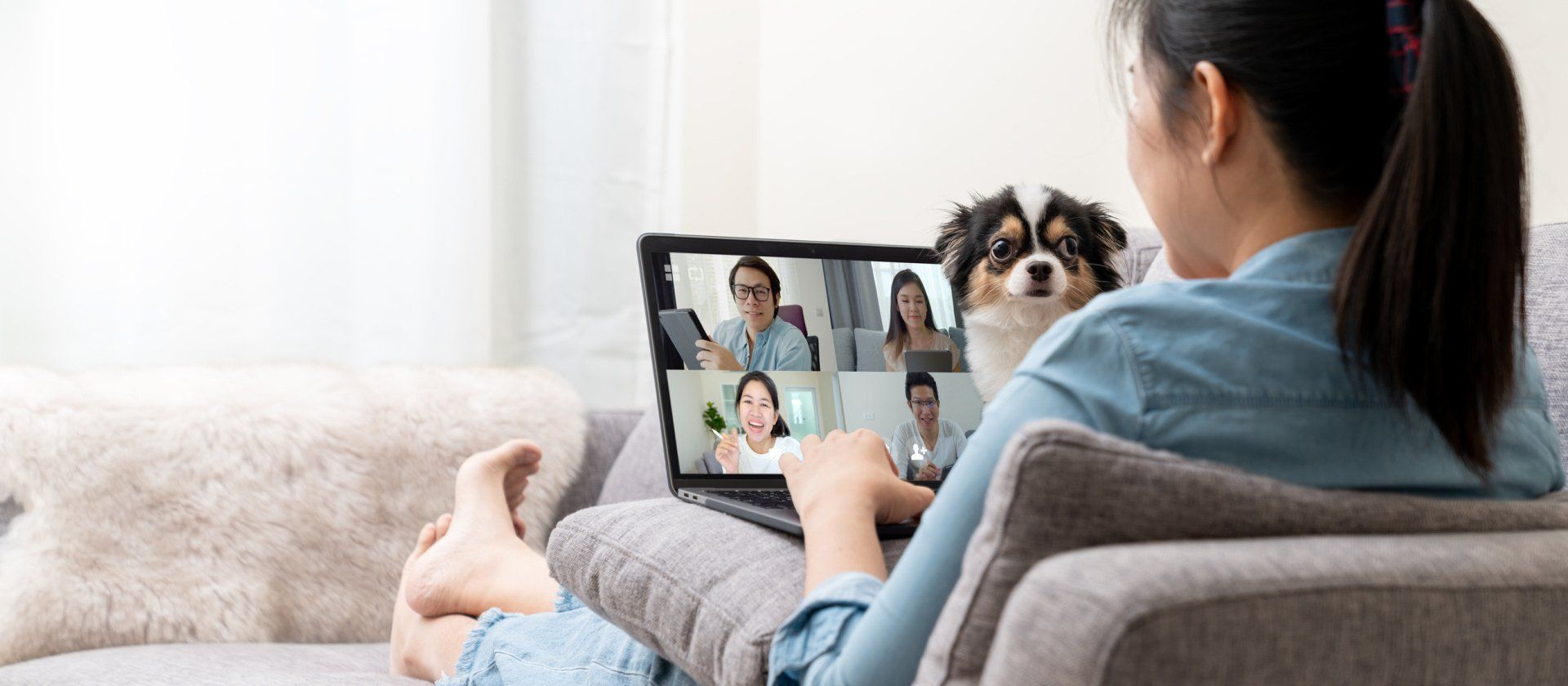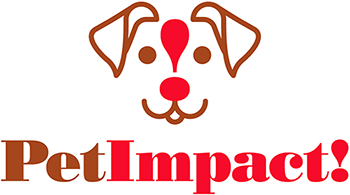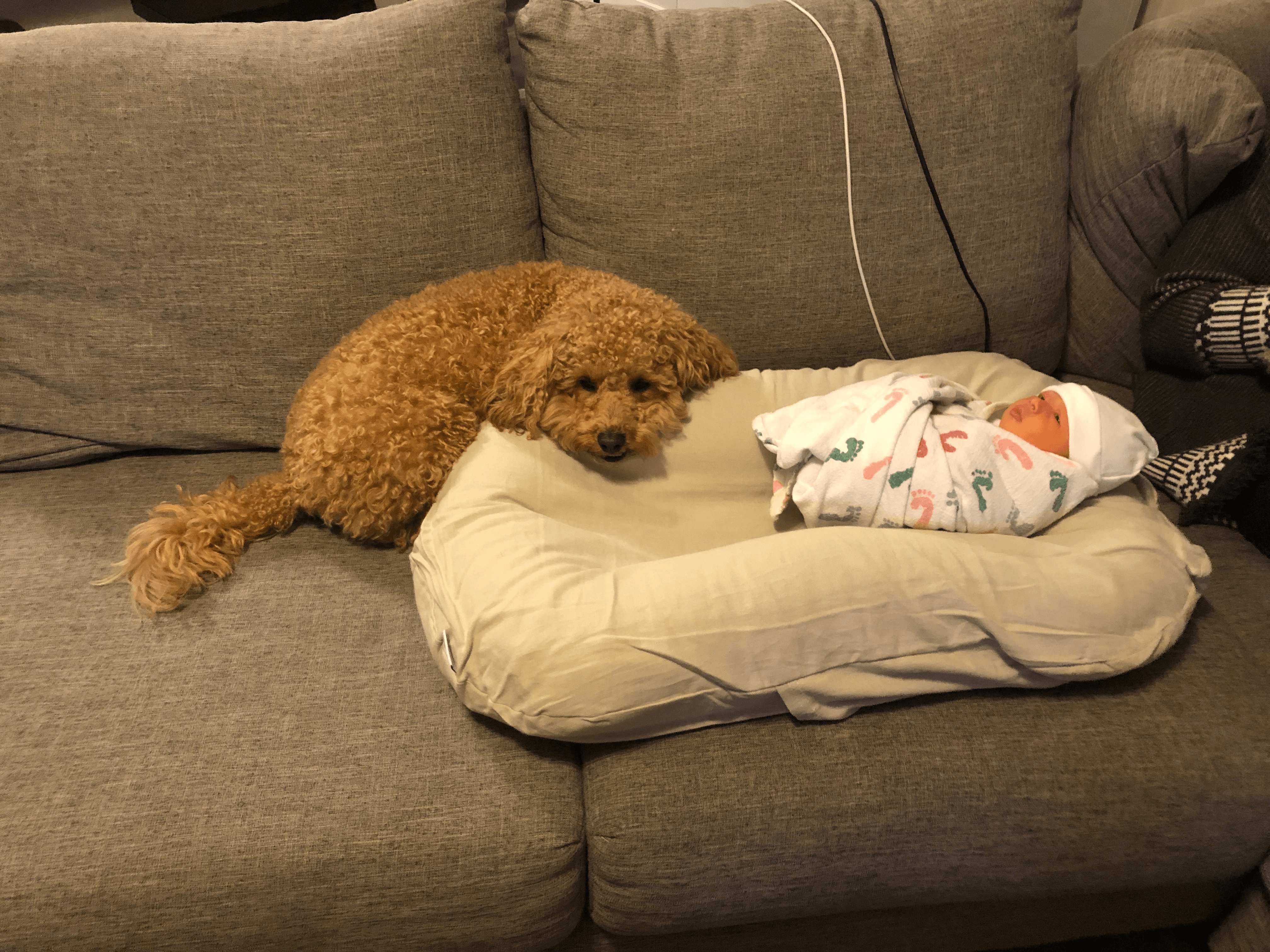And Baby Makes 4
I love working with young people who adopt their first dog. Dog parenting, while not as challenging as child rearing, definitely helps prepare you for what it is like caring and being responsible for another living being.
One of my long-time students, Maui was just introduced to his new sister, and she isn’t one of the canine variety! Maui’s parents have brought a new baby into the fold. What is great about Lauren and Neal, is that they wanted to be completely prepared for the transition to ensure Maui felt comfortable and the baby was safe. So, they asked me to give them some pointers which I am here to share with you!
What to do in advance of baby:
- Introduce to new smells, sights and sounds.
- Diapers
- Baby Powder
- Shampoo
- Toys
- Blankets
- Pacifiers
- Clothes
- Stroller
- Doll
- Baby Sounds
“Baby Sounds for Pets CD”
- Start new schedule if that will change when baby arrives.
- Reinforce, practice and introduce important cues that you will need your dog to do around the baby (Leave It, Touch, Down, Stay, Place)
- Teach your dog the “Away” cue where you throw a treat away from the baby so that your dog learns when you would like them to have distance with the baby. You don’t want to use the “Leave It” cue as it relates to the baby because we want your dog’s interaction with the baby to be a positive one not something they have to “Leave” but something they may need to “move away” from at certain times.
- Find a dog walker if you will need more support when baby arrives.
What to do for the first meeting with baby:
- Enter the house initially without the baby greeting your dog with lots of love and attention for 10 – 15 minutes.
- Put the dog on a leash when you bring the baby in and allow them to sniff around in the vicinity of the baby but not greet them.
- Once things have settled down, find a quiet place when your dog can greet the baby in a stress-free environment and when they are less excited.
- Have high value treats and reward your dog for any positive interactions with the baby.
What to do to create a bonded relationship with dog and baby:
- Teach your dog to “Touch” the baby’s toes when they wants to greet the baby.
- When feeding baby, give your dog something really special to chew on like a Kong with peanut butter and allow them to eat near the baby.
- Allow your dog to lay at your feet when you are holding the baby giving them regular pets.
- Give your dog short special attention time throughout the day.
- Allow supervised access to the baby’s room.
What to watch out for:
- Don’t correct for growling! Growling is a warning and you want your dog to provide a warning so you can remove them from the situation if they get aggressive.
- Keep pacifiers and small baby toys out of reach since your dog could choke on them.
- Keep dirty diapers in a trash can with a tight lid.
- Only give your dog affection when all 4 paws are on the floor so they knows not to jump on the baby.
- Don’t leave your dog alone with the baby.
- Give your dog a safe space like their crate that they can go to get away from the baby if they need a break.
- Create a barrier in the car between the dog and the baby.
- Never force your dog to interact with the baby.
Why dog will make a great sibling for baby:
- Dogs are very loyal to their pack and will do a great job protecting the baby.
- It is a proven scientific fact that dogs make babies happy. Interacting with dogs raises levels of serotonin and dopamine.
- Children are less likely to get allergies and usually have a more resilient immune system when raised with dogs.
- Dogs pick up cues quickly and may sense the needs of the baby even before you do!
- Dogs are fun to be around!
Following these guidelines and you can be assured of a smooth transition with baby. As you can see from the pictures, Maui absolutely loves his new sister, and they are sure to be best of friends.
